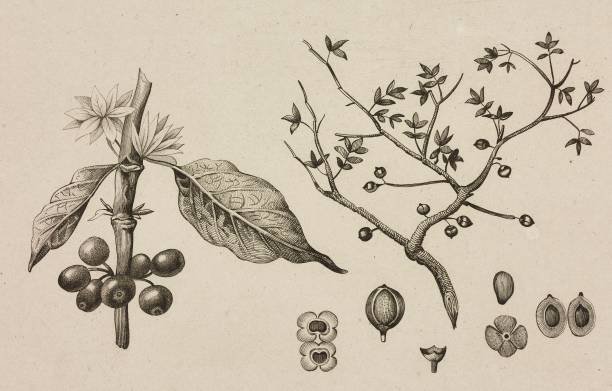Arabica Coffee: “Exploring Culture and Flavor” June 27, 2024 – Posted in: coffee
Introduction
Arabica coffee is renowned for its delicate flavor, smooth body, and nuanced aroma. Originating in Ethiopia, it accounts for about 60-70% of the world’s coffee production. Let’s delve into the cultural significance and diverse flavor profiles of this beloved coffee variety.
The Origins and History
This coffee variety has a rich history that dates back to the ancient coffee forests of Ethiopia. It was first cultivated in Yemen before spreading to the Arabian Peninsula, Europe, and eventually, the rest of the world.
Key Historical Milestones:
- 9th Century: Discovery in Ethiopia
- 15th Century: Cultivation in Yemen
- 17th Century: Introduction to Europe

Cultivation and Harvesting Practices
Arabica coffee thrives in high-altitude regions with moderate temperatures. Countries like Brazil, Colombia, and Ethiopia are leading producers. The cultivation process involves careful selection of coffee plants, precise farming techniques, and meticulous harvesting methods.
Key Cultivation Regions:
- Brazil: Largest producer of Arabica coffee
- Colombia: Known for its rich, full-bodied flavor
- Ethiopia: Birthplace of Arabica coffee, famous for its floral and fruity notes
Flavor Profiles
Arabica coffee is celebrated for its diverse flavor profiles, which vary depending on the region, altitude, and processing methods. Common flavor notes include:
- Fruity: Berries, citrus, and stone fruits
- Floral: Jasmine, rose, and hibiscus
- Nutty: Almonds, hazelnuts, and pecans
- Chocolatey: Cocoa, dark chocolate, and caramel
Cultural Significance
Coffee culture around the world has been significantly shaped by coffee. From traditional Ethiopian coffee ceremonies to the vibrant coffeehouses of Europe, coffee plays a central role in social rituals and daily life.
Key Cultural Practices:
- Ethiopian Coffee Ceremony: A time-honored tradition involving the roasting, grinding, and brewing of coffee in a communal setting
- European Coffeehouses: Hubs of intellectual and social activity during the Enlightenment era
- Specialty Coffee Movement: Modern appreciation for high-quality, ethically sourced Arabica coffee
Health Benefits
- Nutritional Profile: Health benefits associated with drinking Arabica coffee.
- Antioxidants and Wellness: The role of coffee in promoting overall health and well-being.
If you’re captivated by the insights into Arabica Coffee: Boosting Health and Wellness Benefits, you might find our next blog post, “The Science Behind Coffee Roasting: From Green Beans to Perfect Brew,” equally fascinating. Delve into the intricate process of transforming raw, green coffee beans into the aromatic and flavorful brews that delight coffee enthusiasts worldwide.
Conclusion:
Rich history, diverse flavor profiles, and cultural significance make it a cherished beverage worldwide. Whether enjoyed in a traditional ceremony or a modern café, this coffee variety continues to captivate enthusiasts with its complex flavors and timeless appeal.
